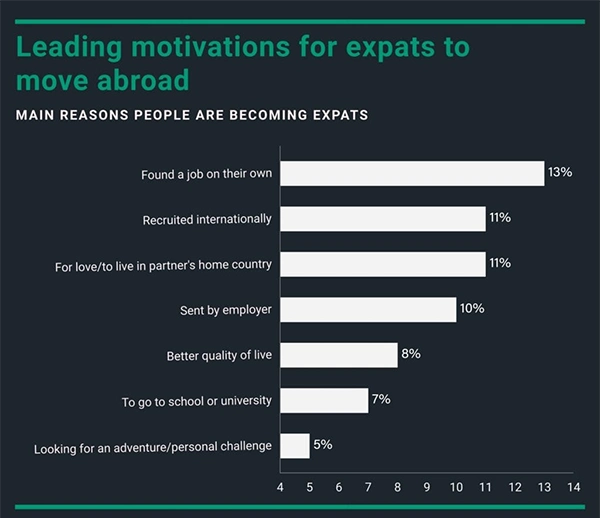
Like anyone else, I was too excited about my move to the international country, and I packed everything I might need from my favorite books to the lucky socks.
The joy was palpable, but it however dwindled rather quickly when I was about to leave behind the most prominent aspect of relocating to a new country: The Paperwork.
I knew that leaving even a single document could affect everything, especially when an international move involves shipping and customs.
Luckily, I meticulously organized all the necessary paperwork timely, and the procedure of relocating went quite smoothly.
However, if you are planning to move overseas, and not demanding any hurdles in the transition, you have landed in the right place.
In this blog post, I’ll let you know what exactly those five documents are that you should ideally have in order when planning an overseas relocation.
So, let’s get started !!
1. Passport
Your passport is the most fundamental document for both travel and relocation.
Thus, as a U.S. citizen, you must have a valid passport to enter most countries.
Ahead, don’t forget to check the expiration date before your move as most countries require your passport to be valid for six months or more beyond your arrival.
However, if you are moving with your family, each family member must have their own passport, including children.
If that document needs to be renewed or applied for a new passport, you should do so well before your move, as processing times can extend to 11 weeks.
2. Visa
In our list of the most prominent documents, a Visa comes next as this paper
grants you legal permission to enter and live in a new country.
The visa requirements depend on your destination and your reason for going there.
Among all, the most common types of visas include spousal, residency, student, and work.
If you need to apply for a visa, it can take weeks or months, so you should apply ahead of time.
You can also check the U.S. Department of State’s website for details on the visa requirements of the country you are moving to.
Also, review the country’s embassy website for updated application instructions.
Do You Know?
The net migration rate for the United States in 2024 is 2.768, with a growth rate of 0.730%.
3. Customs Declaration Form
You will likely be shipping your belongings, so there must be a requirement for a customs declaration form.
This document lists every item you plan on taking with you and also it details the value of each item.
Customs authorities use this form to assess if you must pay import taxes or duties, they also use it to determine if there are restrictions on certain items.
Keep in mind that some countries prohibit the import of plants and certain foods, and some may impose taxes on luxury items.
Therefore, working with a moving company to simplify the customs process is very pivotal.
4. Shipping Invoice
You will receive a shipping invoice if you use a moving company to handle your international shipment.
This document lists the items transported, and the details include descriptions of the items, quantities, and values.
The shipping invoice shows customs officials exactly what you bring into the country, and therefore, it is necessary for clearing customs and establishing taxes or duties.
5. Inventory List
You also need an inventory list that goes into detail on the high-value items you are shipping.
This includes serial numbers and model names, and it will take you some time to create an inventory list, but it is worth the effort.
Some countries require this list for high-value items, hence, you can also use it as proof if you need to file an insurance claim for a lost or damaged item.
A moving company can likely help you create a digital inventory that is easier to track.

What are the Potential Consequences of Not Having the Proper Paperwork for an International Move?
Relocating to a new country is indeed exciting, however, not having the proper paperwork can push you into the following problems:
- Delayed Travel: In case you forget your visa or other travel documents, the immigration officer might take a long time to check you and decide if they should let you enter the country or not.
- Denial of Entry: As mentioned in the above pointers, it’s immigration officers who decide if they can let you enter the country or not.
In that case, if they didn’t find the other document valid, they can deny your entry, and that simply means you have to go back home and regret your carelessness.
- Legal Complication: There are chances of you falling into legal trouble, or you may be required to pay huge fines, and the worst can happen if the officers send you to jail.
No one in this sphere wants to fall into problems especially when moving overseas, thus, it’s strongly recommended that before anything make sure all your documents are valid and up-to-date.
All Ready for Your Move?
As you go through the blog and pack up all those five documents that have been outlined in this article, you are well-prepared for your overseas move.
Make sure to have these on hand to avoid delays and hiccups and enjoy stress-free relocation.
Finally, it’s also a great idea to check out the rules and regulations of the country you are moving into.












